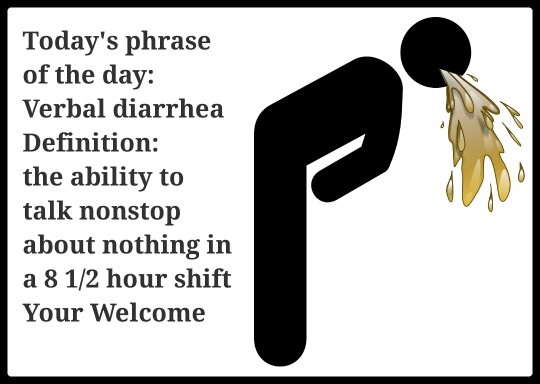
Welcome back to the third installment of our Job Seeker 101 series (click here and here for the last two posts in the series). Here I will try to highlight employability skills for job seekers. These are basic skills every knowledge worker should have mastered on entering the job market. Skills that will stand him/her in good stead and help him/her rise up the career ladder; skills that employers seek to identify when they engage job seekers.
These employability skills (not an exhaustive list) are the skills, qualities and attitudes that employers say are essential for their workplace. And you do not have to wait till you start working to ingrain these skills.
As you read, I need you to think. Rate yourself on a scale of 0 to 5: 0 meaning you do not have this skill in any form. 3 meaning you do have some form of this skill sufficient to be a novice, and 5 meaning you have the skills in spades. When you are done, you will know exactly where you are on the employability scale and where you need to shore up your skills.
Here we go…
Positive Attitude: In my book, if someone has 2 out of 5 of the technical skills I am looking for, but has a positive attitude I will most likely give him/her the job; ahead of someone who has 4 of the technical skills with a bad attitude.
Having a positive attitude is like showing up to your team’s game ready to give it your best, excited and ready to go even if the chances of winning are low and it’s going to be hard work.
Do you have a positive attitude? How do you know?
Communication: You have good communication skills if you can listen actively and take correct action based on what has been communicated to you.
But communication skills aren’t just verbal. This skill set includes written communication and non-verbal (body language) as well.
 A friend posted this on Facebook this morning (image to the right). Apparently, the writer is a job seeker who was asked to contact the recipient for a job.
A friend posted this on Facebook this morning (image to the right). Apparently, the writer is a job seeker who was asked to contact the recipient for a job.
How would you rate the job seekers communication skills? The unfortunate outcome of this WhatsApp message is that the job seeker failed to cinch the role even before the referee said ‘GO!’
Customer Awareness: Every organisation has customers – internal and external customers. And increasingly organizations are looking to put Customer Service in the center of their systems and make it a key competitive advantage.
What do you know about managing customers? Do you know how to manage customer expectations? How to build rapport with customers? This skill comes from experience and you either have it or not. Do you?
Self-management: If you are still having a love affair with African Time you have NOT mastered this skill. If you still grapple with verbal diarrhea, you do not have self-management skills. If you do not know how to prioritize tasks and variables of your everyday life, you cannot manage yourself.
Without self-management, no employer will hire you to manage any project, client or team. This is important.
IT Skills: We live in a world that is more and more being ruled by computers. Most jobs today need some level of IT savvy. You need to prepare to work with computers to create documents, write reports, make presentations, analyze data, and so much more.
There is a co-skill to having IT Skills that many of us forget. It’s called Social Fluency. It relates to your understanding of social platforms like Facebook, Instagram, SnapChat, LinkedIn, Twitter, various social expert systems and more.
Are you a novice on these platforms or can you hold your own? Some jobs require you to engage with clients on social media and even understand whats going on under the hood of the platform. Can you do that?
You need to be prepared to show off your IT skills and hold your own in the work place. Can you?
Teamwork: Teamwork is just like when you’re playing football or singing in the choir in church. The team cannot win if you do not play your part and sing your part, can it?
Team work is a function of humility, discipline, self-knowledge and respect for others. If you do not have these you cannot work effectively or successfully in any team. And if you are not a good team player chances are that no employer will want you in their team. Except you want the lone job of lighthouse keeper…and even that job needs some team skills.
Willingness to learn: Particularly when hiring freshers, recruiters look for people with the ability to go up the learning curve swiftly. They seek people who are trainable and eager to learn. Are you willing to learn new things – even when the learning process takes you outside your comfort zone or is a difficult process for you! Are you willing to learn?
 Problem Solving & Decision Making: Some people call this ‘thinking skills’. Using thinking skills means that if you see a problem, you don’t wait for someone else to fix it… you find a way to fix it. It means showing initiative in a situation where a decision has to be made.
Problem Solving & Decision Making: Some people call this ‘thinking skills’. Using thinking skills means that if you see a problem, you don’t wait for someone else to fix it… you find a way to fix it. It means showing initiative in a situation where a decision has to be made.
Employers want to see the ability to understand and articulate a problem as well as evidence of logical reasoning.
Resilience: Resilient? Why does a job seeker need to be resilient? Ask a job seeker who has been pounding the pavement for 28 months since leaving school, getting nothing but rejection after rejection.
My go to synonym for ‘resilient’ is ‘tough’. Google defines resilience as ‘the capacity to recover quickly from difficulties; toughness’. Does this describe you? Resilience is accepting that life does get hard at times and does change. It’s about being able to change, ask for help and keep going.
Will you recover when your team loses a client account? Will you recover when you have unfavorable performance feedback from your supervisor? Will you stick to it and bounce back to a positive attitude at work?
Integrity: Every employer is looking for people who are honest and have strong moral principles.
It is said that ‘if you do not stand for something you will fall for everything’. Know what your core values are and learn to stick to them no matter what. You have to be someone whose word is his bond, and not someone whose alliances shift and flutter like a flag in a storm. You have to be a straight shooter.
Did you rate your employability? What’s the verdict?
So you now know what skills you have and you can defend them when asked in an interview. You need to highlight each of the employability skills in your resume. And ensure that when enumerating your accomplishments, the same train of thought runs through your narrative. It is important!
The next question is how one can improve his employability skills. I will discuss that next week. So, ensure you subscribe to the newsletter so you don’t miss the next blog in the series published every Friday.
In the meantime, feel free to comment and send me a direct message with questions and or comments.
Cheers.
I always like to bring a different view point to my posts so enjoy this short and witty YouTube video on the topic.




